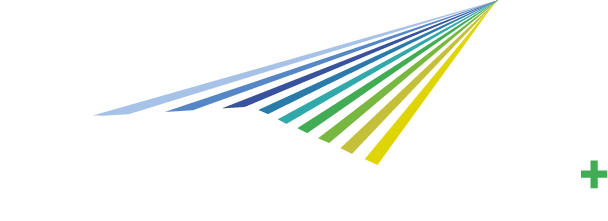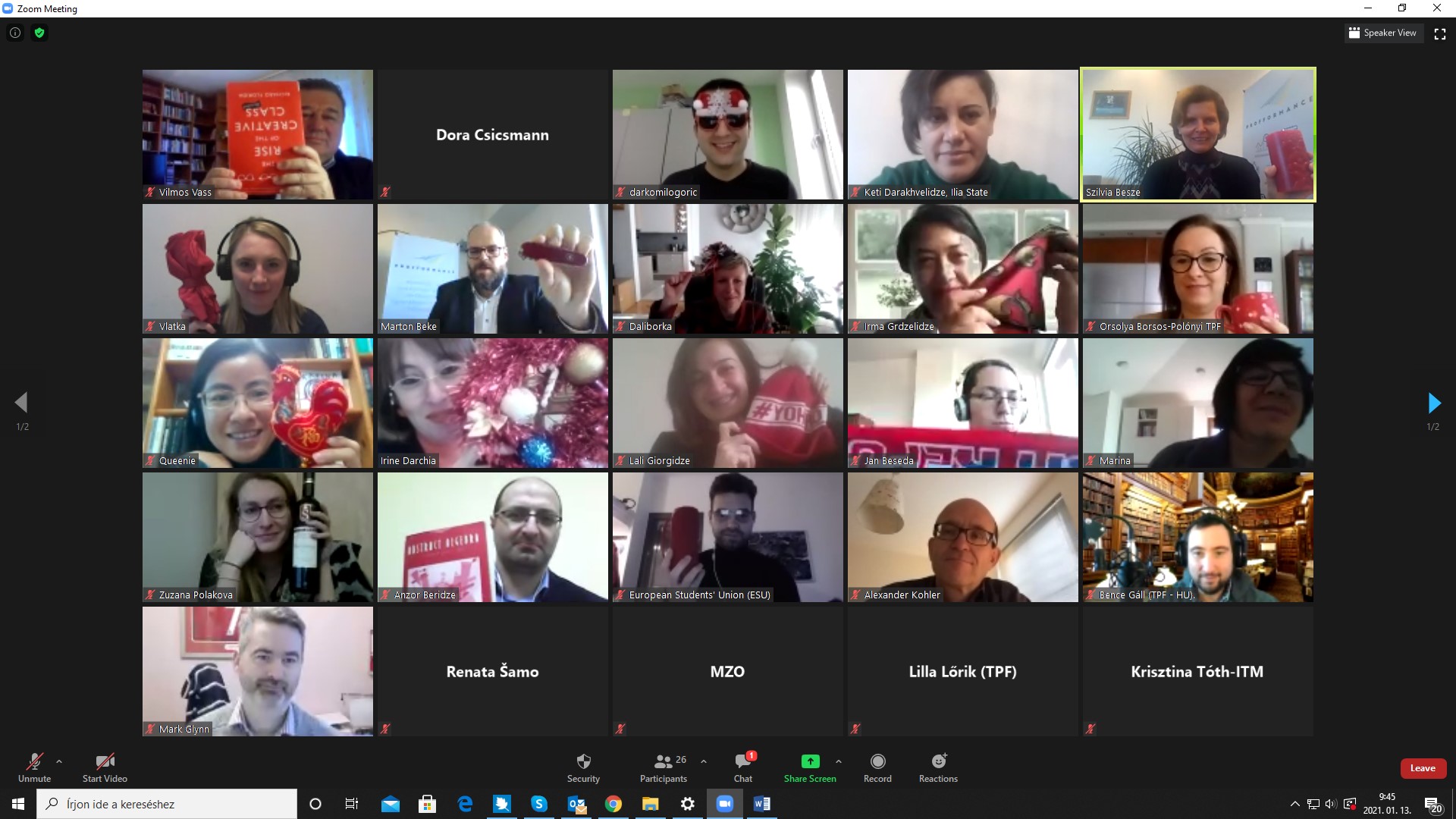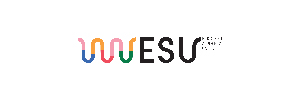2021-01-28 12:18:43
Focus on teachers' competences - Experience of PLA1 Day2
PROFFORMANCE experts continued their work after the successful preparatory day1 of PLA1 to define what competences needed for the 21st century teachers to fulfill their various and wide ranged tasks and activities in their academic life.
Between the two days of the PLA1 the three expert groups worked synchronously and asynchronously to agree on the to-be-used definition of teachers' competence, on finalisation of their thematic areas, and to define which are the so-called horizontal aspects - like digitalization, internationalisation, inclusion, third mission - which affects almost all the tasks teachers do. They also had to deal with the overlapping items - tasks belonging to more categories - between the groups.
On the second day of the PLA - very early after the holidays - experts met again on the 13th January. We have started our welcome coffee with a game. Participants brought a "red thing" of any kind, and each of them could tell some message to the others or expalined why (s)he brought that particular object. The heart-beating or funny messages not only contributed to set a nice athmosphere, but we could get to know a bit more the people behind the screen.
On the official part, Vilmos Vass outlined the aims of the meeting and Daliborka Luketic presented the synthetized working definition of teachers' competence to be used during the discussions. As there were many definitions proposed by the experts and much more exist in different studies, projects etc., upon all those, it was necessary to conclude to one which is comprehensive, but simple and everybody can accepts its usage.
The next step was to listen to the report of the WG leaders, what they could achieve, what were their challanges during group work. It was interesting to hear that how differently they accomplished their tasks, how different methodology they used. They got some feedback from the main leaders and also from the other group members, and they could learn from each other on the implementation methods as well.
Before continuation of the group work some more inputs have been provided for the experts. László Horváth and Günter Wageneder presented the qualitative assessment of the benckmarking questionnaires, analysing the answers which contained practices on teachers' assessment and also showed some assessment tool models for inspiration. Vilmos Vass outlined how the multiaspect assessment tool (self/peer/student/management/stakeholder) can be used for quality assurance of teaching and learnng in higher education. Finally Daliborka Luketic guided us through on the whole process how to get from the definition of teachers' tasks to assign competence fields to each and how these competence areas can be assessed from the different points of views (self/peer/student/management/stakeholder). Then working groups continued their work and agreed on continuation.
It turned out that the elaboration of an assessment tool is not an easy task at all. Above all, experts couldn't meet personally just in the online space. We work in 3 different time zones. The more than 20 international experts with different experience should work together and the process itself should be invented together, deciding which fits the most to the PROFFORMANCE aims. Fortunatelly both the experts and the partners are very enthusiastic and collaborative, and a real peer-learning is accomplished between the different parties.


















